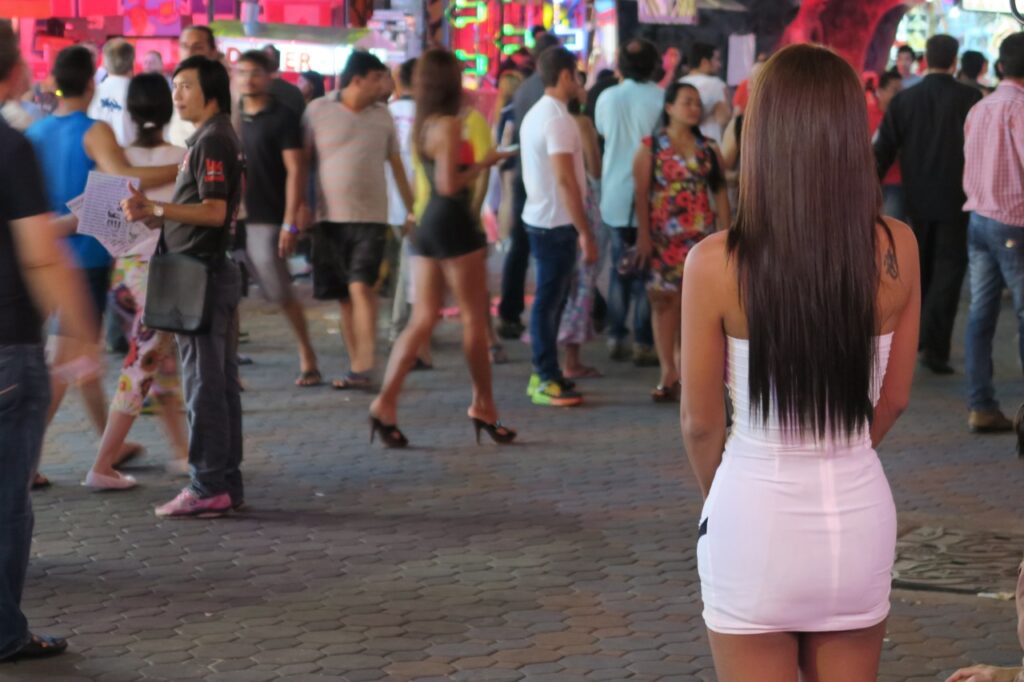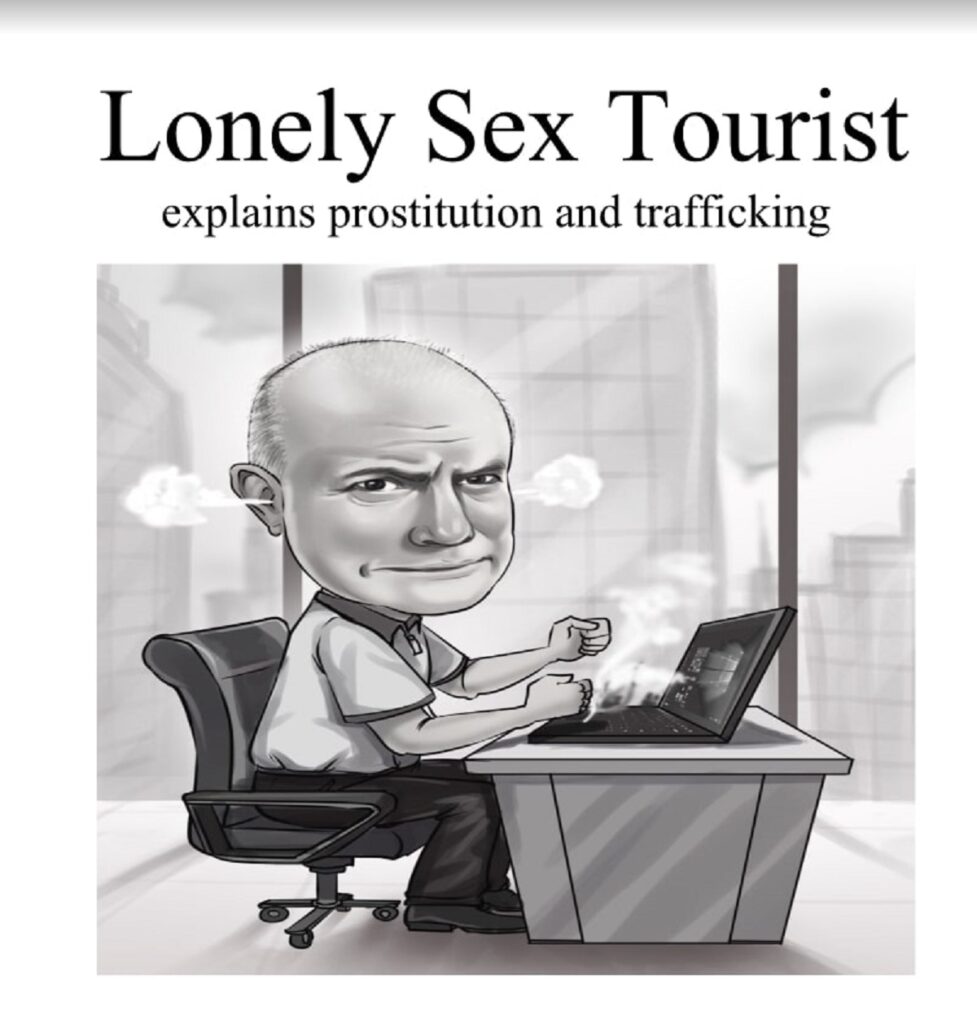How do we decide to deal with the horrible crime of sex work?
Should it be to legalize or to continue to criminalize. Maybe we should decriminalize. That seems the easiest choice. REF #20. But there is a fourth choice and that is to do nothing if that is working well too.
So, why do I make reference to the horrible crime of Jay Walking. I should explain, and I will.
What is Jay Walking? That is the name of a common crime in the United States. Governments go to great effort to install traffic signals and paint lines on the street to help people walk safely where there is potential vehicle traffic. It is usually against the law for people who are walking to ignore this help. If people, in theory, walk across a street in the middle of a block they could get a ticket and pay a fine. Does this this happen often? No.

Police can’t be everywhere. Many locations do not have dangerous traffic. Police are busy with more important issues. Giving a ticket to a person for Jay Walking simply does not happen. But that is not always true. If there is a lot of dangerous traffic, if children are involved, if traffic is hindered by people Jay Walking, then yes people may get a ticket and a cash fine in court. But this is rare.
There are many similar crimes, some old fashion crimes on the books like failing to pick up after your horse, etc., which are commonly ignored.
What about sex work? Are there places where that is often ignored? It is not surprising that in the United States it is freelance sex workers on the street who might be rounded in organized campaigns across many jurisdictions. That problem often seems deeply entwined with drug use and drug sales. REF XX. But that is America. It’s America’s culture which includes both the training and the ethics of many policemen.
Keep this in mind when we consider that the USA, the wealthiest and in its own way the internationally most powerful country in the world that spends millions, even billions, of dollars demanding other countries to aggressively attack sex work and sex trafficking. Should we learn from the example of criminalization of sex work in the USA or are there other lessons to consider? Before demanding other countries to follow the USA example, should we try to learn from them?
I live in Thailand. I learn from Thailand. Thailand gives me good examples which also applies to other countries. I will describe what I call moderate criminalization, or the “Jay Walk Method” to criminalizes sex work.
There are a lot of sex workers in Thailand, both those who come from rural areas to urban and tourist areas – REF XX – and also from urban areas who are more likely to work in red light facilities favored by native Thai men – REF XX. An attractive young lady, but over 18 years old, may work in a fancy bar dancing in a bikini while holding onto a chrome bar. Maybe she will have a 30th birthday and be fired from the fancy bar because she is now too old for that kind of bar. If she has a great personality and some steady customers, she might keep her job until she is 35 or 40 but eventually she will have to move on, very likely to another form of sex work. It could be freelance sex work on the street.

But American sex culture knows that is horrible, dangerous, etc.. One of Thailand’s top five universities did big research in 2007 and published the extreme claim that 28% of all Thai freelance sex workers experience violence every week. To me that sounded crazy on its face. The claims of violence were only a small part of the results of the study, but those claims of violence were published many times by organizations such as regional publications of the World Bank. The study includes useful information explaining the methodology of their study which I could duplicate.
In my university experience, I learned that a test trying to duplicate another researcher’s suspicious result is a scientifically ethical thing to do.
Oddly, I think I did a pretty good job of that and found a big difference. In my study only .006% of Thai freelance sex workers in my sample of 500 agreed that they experienced violence in the preceding seven days, the period the earlier study used. I suggest to you that .006% is quite a bit different that 28% in that other academic study which was limited to sample size of only 128. My study as an individual, of course, got virtually no publication and when I raised questions asking the other study to defend their extreme conclusion, I was ignored.
I see problems: first, this claim by a very respected university probably has had an inappropriate role in setting the standard for the rest of the world. Many researchers just agree now and freely claim that it is freelance sex workers who suffer great danger. Did they do their own study? Also, this adds to the common knowledge that all freelance sex workers everywhere are the same. Furthermore, whatever political or criminal changes that result from what I consider misinformation, could do more harm than good.
So, what is my experience with freelance sex work in Thailand? In addition to my own successful attempt resulting in another study of violence, I am also out on the street watching what is going on and meeting people. I am rarely in those fancy bars because I am not much of a drinker.
Let me introduce Dong (not her real name). She is from one of those Isaan villages. She has two children who usually stay home with their grandmother. Dong usually works days arriving on the street as early as 8 am and staying until it starts getting dark. She is not traditionally beautiful but is also a very happy, smiling woman and seems successful at sex work. Here is what Dong told me: She always tries to have a 1,000 Thai baht bill on her at all times, about $30 – $36 depending on the exchange rate.
She is there in the same place almost every day, so any police assigned to that area know why she is there. If she sees police coming up the street she will walk away as best as she can. If they stop her, she knows they will take her 1,000 baht bill to leave her alone. If she doesn’t have that she may have to go to the police station several blocks away, wait to be processed, show her identification, and probably walk back to where she works. Having the 1,000-baht bill handy is simply a cost of doing business. It only happens occasionally. Also, the police do not hang around because that will scare customers away, but they are in the wider area and are watching everything. Dong feels safe and has never had a serious problem.

This is what I call the use of the Jay Walk Method of criminal enforcement. Everyone in Thailand knows sex work is illegal, but everyone also knows that rarely is anyone harmed and the sex work that does take place is with consent of both parties. Drug use is not a problem. It is certainly not the story you hear about freelance street sex work in the USA.
I have observed similar law enforcement of sex work in the Dominican Republic, in Madagascar, and in the Philippines. Police are responsible and even helpful. Police are also not from the wealthy end of society and have empathy for these women.
For me the most sensible way to manage sex work criminality is what I call the “Jay Walk Method”. There is no reason to get all emotional about sex work. We should never forget that sex work of all kinds is a small problem statistically and provides comfort to many lonely men.
In the USA there is an expression used in sports, No Harm, No Foul. For example, in basketball, a “foul” means breaking a rule of the game which results in a penalty. But, if no one was hurt, the foul or penalty may not be given by the referee and the game continues without interruption.
Maybe this is a good way to think of sex work too. If the sex worker is an adult; if both parties agree to what happens; and if no one is hurt the game goes on.












